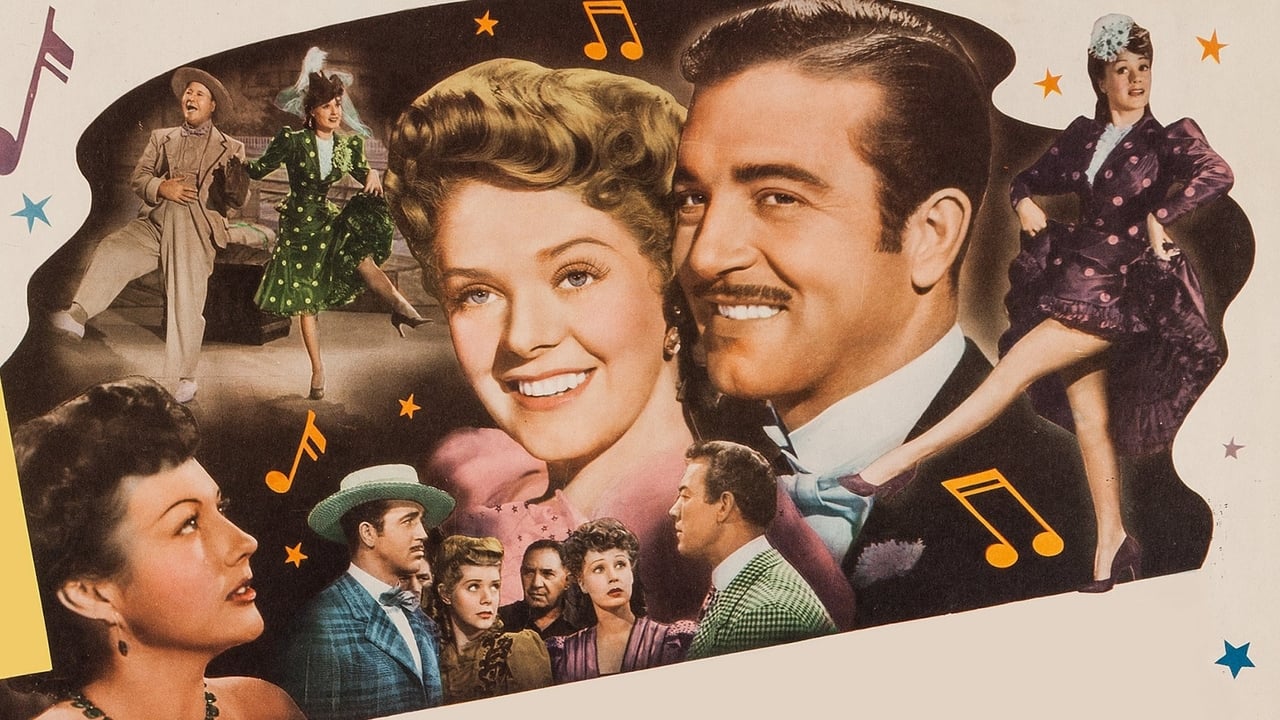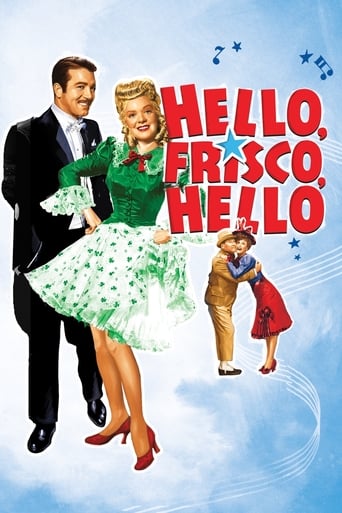

the post saying the score is anachronistic is quite wrong.This is not San Francisco in the middle 19th century. It is San Francisco in 1915. Note that there are telephones, and they speak of the FAIR. The world's fair was held in 1915 in San FranciscoIn one scene a depiction of the famous FLATIRON building in New York is visible, this building completed in 1902.Early in the film a transcontinental telephone call was placed from New York to San Francisco. This event took place circa 1915 and was a famous part of the World's Fair.I think this film is a beautiful example of technicolor's magic and few can compare. The only person who won't like this film is someone who doesn't like to entertained.
... View MoreTrudy (Alice Faye), Johnny (John Payne), Dan (Jack Oakie) and Beulah (June Havoc) share a song and dance act on the entertainment circuit. Dan and Beulah are partners while Trudy wishes for the same with Johnny. However, while he asks her for dates, he is more concerned about career. He comes into some money and starts putting on shows and he also meets a wealthy heiress Bernice (Lynn Bari). He marries her while Trudy goes solo to make her fortune in Europe. Their roles are reversed as Bernice bankrupts Johnny and Trudy's career takes off. Things come together at the end in the club that they started out in as everyone is re-united.The story isn't really important as the film is a collection of music numbers. And they are all pretty good, eg, the scene at the Rollerdrome. John Payne's character is difficult to sympathize with and difficult to read as you can't tell when he's romantically interested in someone or not.....maybe he has some form of autism...... or maybe he is just a bad actor................his actions and reactions are very unusual. Jack Oakie and Laid Cregar who plays Johnny's friend Sam are noisy and shouty and so the film drags when these two are on screen. I think the film needed more from June Havoc who is the best out of the cast.The story drags in parts but it is the colour, costumes and music numbers that pull this film into the good category.
... View MoreThis was an engaging musical, though I must admit that this is probably my least familiar genre. While I like the occasional musical, they aren't something I rush to see.John Payne and Alice Faye star in this Fox film. They are partners along with Jack Oakie and June Havoc and they hit the big time thanks to their musical talents as well as Payne's amazing business sense. It seems to everyone except Payne that Faye is in love with him, but the big dope never recognizes her for her decency and charm. Instead, he has the eyes for selfish Lynn Bari--mostly because she is rich and well-heeled and a place in society is what Payne wants most. However, the marriage is a bust and Bari does nothing except bleed Payne's bank accounts. Now destitute, poor long-suffering Faye returns to help him back on his feet as the movie fades.The story of a man too blind to see love and too proud to ask for help is familiar and I've seen it a few times already--so the plot was awfully familiar and predictable. However, despite this, it was entertaining and my wife, who hates old musicals, actually sat through the film and enjoyed it. Also, the choice of songs is excellent--with many old hits. Not among the very best musicals, but still very good. And, unlike me, if you love the genre, then this is a must-see film.
... View MoreWonderful music and sumptuous color mark this great 1943 film. The song You'll Never Know won the academy award that year and deservedly so.This is a sparkling musical where John Payne really shines as Johnny Cornell, a street hustler, who goes from rags to riches. While I thought that Clark Gable would have been fabulous in the part, Payne is quite good here.Alice Faye seemed to just get better and better. Continuing her tradition in "Alexander's Rag Time Band," she goes through a lot to get her man.Jack Haley and June Havoc give great musical support to Payne and Fay. Havoc looks just like Lucille Ball in several scenes. Hard to believe that just 4 years later, she portrayed Jewish secretary Elaine Wales in "Gentleman's Agreement." I guess that's what acting is all about.The devil here is Lynn Bari, a socialite from Knob Hill who is wiped out only to marry an up and coming Cornell and then take him for a financial ride.Of course, love conquers all at the end but you will feel so good after seeing this film. They just don't make musicals like this anymore.
... View More